Mitt Romney Knows Where You Live — And So Much More
The Democratic and Republican campaigns have accumulated a tremendous amount of political and personal data on millions of Americans.
There was a time when precinct bosses or their lieutenants went to voters’ homes, escorted them to the polling place and then stopped by the neighborhood bar to buy them a drink on the way home.
Like many great old customs, this one is obsolete and — as far as the drink as a reward for a vote — possibly illegal. But the general idea lives on. The bosses’ counterparts of today, masters of technologically sophisticated get-out-the-vote programs, could be a deciding factor in the presidential election, especially after superstorm Sandy has limited campaigning by President Barack Obama and his Republican challenger, Mitt Romney.
If polling indicating tight races is on target, these get-out-the-vote efforts could provide the 1, 2 or 3 percentage points needed for victory in the battleground states of Ohio, Florida, Virginia, New Hampshire, Colorado, Nevada, Iowa and Wisconsin.
In a way, today’s get-out-the-vote campaigns, known in the political business as GOTV, are reminiscent of what the old precinct bosses did. In those days, they really did know everyone in the neighborhood. They knew their family stories, their church or synagogue, the kids’ schools, people’s troubles at work, their health, probably their doctor and druggist, their food market and, most important, their politics. Today, that is done by little known companies and technicians who collect all this stuff, which is now known by the sterile word “data.”
The Democratic and Republican campaigns have accumulated a tremendous amount of political and personal data on millions of Americans. Catalist, the data firm used by Obama, boasts on its website that it keeps a file on each of 265 million voting age people in the United States. Another firm, Aristotle, which serves Republicans and Democrats, says it has a database of more than 175 million voters. These files each contain vast amounts of public information, including age, party affiliation, marital status, address, occupation, education, vehicle ownership and court cases.
In addition, such firms acquire huge amounts of data that generally could be lumped in the category of “it’s none of their business.” This includes such information as purchases of computers, groceries, gym memberships, magazines, books, music, DVDs, furniture, clothing and much more, all recorded by businesses where the items are purchased and then sold to data firms. Finally, the individual files are fattened even more with political profiles of each voter composed of information gathered by campaign volunteers canvassing potential supporters by phone or in person. This includes data on their political views and whether they have voted in past elections. Powerful computing makes it easy to organize the data.
The process raises important issues of privacy, and I’ll come back to this point later, but first we’ll look at the fascinating technology.
I started examining at the ground level, guided by journalist Sasha Issenberg in his invaluable book “The Victory Lab: The Secret Science of Winning Campaigns.” I visited Obama offices, where volunteers make phone calls to prospective supporters. They also are dispatched to neighborhoods to solicit backing in person. I did my reporting in the Los Angeles area, something of a disadvantage since California is solidly for Obama and his volunteers aren’t battling vote by vote, as are those in Ohio, Colorado and Nevada. Nevertheless, I met hardworking men and women who knocked on doors and made calls. In addition, Californians phoned people in Colorado and Nevada and some of them have traveled to Nevada to walk neighborhoods.
In a storefront office in the Crenshaw district of South Los Angeles, a working-class and middle-class Latino and African-American neighborhood, Dorothy Carter, a retired Los Angeles public school administrator, was entering data gathered by other volunteers from their phone calls. She first met Obama at the African-American oriented Eso Won bookstore nearby when he was speaking about his book “The Audacity of Hope.” Four years ago, she and a friend went to Texas to campaign for him for president.
Looking at the other volunteers, she said, “They’re fired up and ready to go,” an Obama slogan from 2008. “They come in after work,” she went on, and face “formidable” obstacles, balancing jobs and family care with their determination to work on the campaign.
The data gathered by the Crenshaw volunteers from their conversations goes into the files of each individual voter, added to the rest of the data. Armed with lists of names, canvassers head into neighborhoods, stopping at the homes of people on the list. Many of those residents were selected because the data in their files showed they were undecided or “occasional” voters who leaned toward Obama. Others were strong Obama supporters who were asked to work as volunteers and to enlist their friends and neighbors in the Obama cause. Names and addresses are on clipboards or on iPhones, iPads, iPod Touches, and Android phones and tablets. Those so equipped send their data directly from the field into the campaign databank.
“We try to understand voter behavior,” said Marie Kim, California deputy regional field director for the Obama campaign. I interviewed her at another headquarters, this one on the third floor of an aging office building in Los Angeles’ suburban San Fernando Valley. Kim graduated from Harvard in 2010 after studying government and got a job in Silicon Valley in business analytics, work much like what she and other Obama staff members do in finding patterns in mountains of data. She walked into the Obama headquarters in Los Angeles, volunteered and was hired.
The technology permits national headquarters to monitor the work of each volunteer. “Last weekend, they said we needed 40 people to make 1,600 calls,” said volunteer Rene Caballes, who works in the San Fernando Valley headquarters. “We just had 20 people but we still made 1,600 calls.”
To Issenberg, gathering and using all this material is a good thing. “Campaigns have started treating voters like people again,” he wrote.
But I’m troubled that any institution, especially a political campaign that eventually shapes government policy, knows so much about me. I understand that Amazon, Google, Facebook and others are loaded with such information. But what about the secret ballot? What about my politics being my own business? What about employers buying these lists and using them to vet people for hiring and promotion?
Today, with people baring the smallest and most boring details of their lives on Facebook, the phrase “invasion of privacy” has an antiquated sound, but that’s an apt way to describe this profiling.
This is different from the old days when the neighborhood’s chief politico knew how long you lingered at the bar or if you missed the mayor’s rally. The practitioners of the new politics know much more about you than even the most curious or gossipy boss. I don’t like the idea of the political technicians gathering all this information on me, storing it in databanks and selling it to god knows whom.
Your support matters…Independent journalism is under threat and overshadowed by heavily funded mainstream media.
You can help level the playing field. Become a member.
Your tax-deductible contribution keeps us digging beneath the headlines to give you thought-provoking, investigative reporting and analysis that unearths what's really happening- without compromise.
Give today to support our courageous, independent journalists.
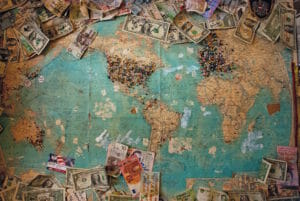
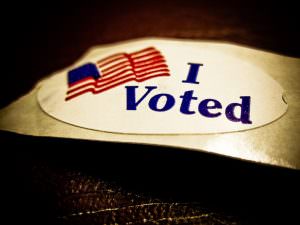
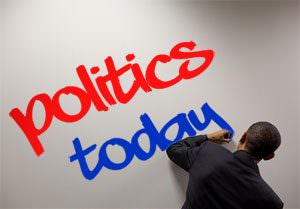
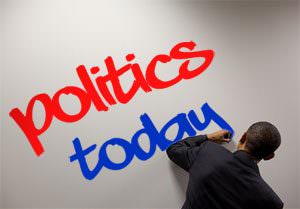
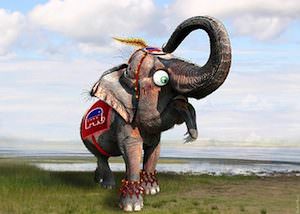
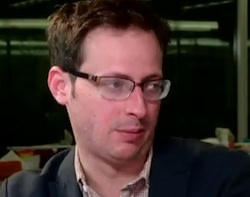


You need to be a supporter to comment.
There are currently no responses to this article.
Be the first to respond.